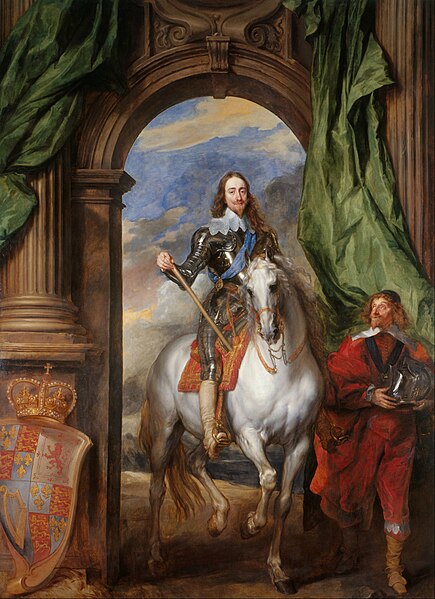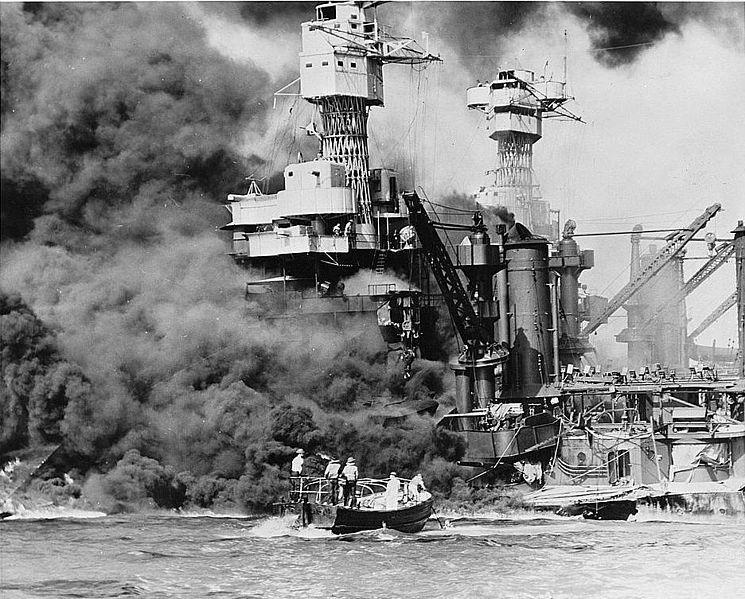In this article, we explore twenty significant historical events that occurred on January 20th, arranged in chronological order.
These events span centuries and touch upon pivotal moments that have shaped the course of history in various fields, including politics, culture, and international relations.
From the convening of the first English parliament in 1265 to significant presidential inaugurations in the United States, each event provides insight into the evolving nature of governance, societal progress, and the complex tapestry of human history.
By delving into these occurrences, we gain a deeper understanding of the forces that have influenced today’s world and the milestones that mark our collective journey through time.
January 20th Events in History
1265 – The first English parliament met at Westminster Hall
This event is often considered a foundational moment in the development of the parliamentary system in England. Simon de Montfort, 6th Earl of Leicester, called together the first parliament in English history that included not only nobles and clergy but also commoners from the towns and shires.
Also Read: January 19 – On this Day in History
This gathering marked a significant step towards the establishment of representative democracy in England. The meeting in Westminster Hall set a precedent for the future summoning of representatives to advise and consent on governance matters.
1320 – Duke Wladyslaw Lokietek becomes king of Poland
Wladyslaw Lokietek, whose nickname translates to “Elbow-high” due to his short stature, was crowned King of Poland on January 20, 1320, in the Wawel Cathedral. His coronation was a pivotal moment in Polish history, signifying the unification of Poland after a long period of fragmentation into smaller duchies.
Also Read: January 21st Events in History
Lokietek’s reign was marked by efforts to strengthen the monarchy, defend the country’s borders, and consolidate the territories of Poland under a single ruler, efforts which laid the groundwork for the future Polish-Lithuanian Commonwealth.

1649 – Charles I of England goes on trial for treason and other “high crimes”
The trial of Charles I was a landmark event in English history, marking the first time a reigning monarch faced a public trial and execution. The charges against Charles included treason against the Kingdom of England and abuse of power. The trial was conducted by a High Court of Justice established by the Rump Parliament, following the English Civil War.
Charles refused to recognize the authority of the court, arguing that no court had jurisdiction over a monarch. His trial ended with a guilty verdict, and he was executed on January 30, 1649. This event led to the abolition of the monarchy and the establishment of the Commonwealth under Oliver Cromwell.
1783 – The United Kingdom and the United States sign a preliminary ceasefire to end the Revolutionary War
The preliminary articles of peace were signed in Paris, signaling the end of hostilities between the Kingdom of Great Britain and the United States of America, following the American Revolutionary War. These preliminary articles laid the groundwork for the Treaty of Paris, which was signed later that year on September 3, 1783.
The treaty recognized the independence of the United States and established borders between the new nation and British North America. It also addressed issues such as fishing rights and the restoration of property and prisoners of war.
1788 – The third and final convict fleet arrives at Botany Bay, Australia
The arrival of the First Fleet at Botany Bay in January 1788 marked the beginning of European settlement in Australia. The fleet consisted of 11 ships carrying over 1,000 settlers, including 736 convicts. This event is foundational in Australian history, representing the start of British colonization and the transformation of Australia into a penal colony.
The choice of Australia as a destination for convicts was driven by the loss of the American colonies and the need for a new location to relieve overcrowded prisons in Britain.
The settlement initially faced numerous challenges, including food shortages and conflicts with Indigenous Australians, but it eventually grew to become the city of Sydney, the first European settlement in Australia.
1801 – John Marshall is appointed Chief Justice of the United States
John Marshall’s appointment by President John Adams marked a significant turning point in American legal history. Serving from 1801 until his death in 1835, Marshall became the fourth Chief Justice of the United States and is credited with establishing the Supreme Court as a coequal branch of government.
Under his leadership, the Court issued landmark decisions that established the principles of federalism and the judiciary’s authority to interpret the Constitution.
His most famous decision, Marbury v. Madison, established the principle of judicial review, empowering the Supreme Court to strike down laws it finds unconstitutional.
1841 – The island of Hong Kong is ceded to the United Kingdom
The cession of Hong Kong Island to Britain was a result of the First Opium War between the British Empire and the Qing Dynasty of China. The Treaty of Nanking, signed in 1842, concluded the war and included the provision that Hong Kong Island would be ceded to the British.
This event marked the beginning of British colonial rule in Hong Kong, which lasted until 1997. Hong Kong’s strategic location and deep-water harbor soon made it a vital international trade port and a key component of the British Empire in Asia.

1887 – The U.S. Senate allows the Navy to lease Pearl Harbor as a naval base
The acquisition of Pearl Harbor as a naval base was a strategic move by the United States, aimed at increasing its naval presence in the Pacific. The Hawaiian Kingdom, seeking protection and economic benefits, granted the U.S. the exclusive right to establish a coaling and repair station at Pearl Harbor.
This agreement laid the groundwork for the U.S.’s growing influence in the Pacific and its eventual annexation of Hawaii in 1898. Pearl Harbor went on to play a critical role in U.S. military strategy, especially during World War II, following the Japanese attack on December 7, 1941.
1936 – King George V of the United Kingdom dies
King George V’s death marked the end of an era for the British monarchy. Reigning from 1910 to 1936, his tenure saw the devastation of World War I, the rise of socialism and nationalism, and significant changes in the British Empire.
George V is credited with successfully steering the monarchy through these tumultuous times, including overseeing the transformation of the British Empire into the Commonwealth of Nations.
His death brought his eldest son to the throne as Edward VIII, who later abdicated the same year in a constitutional crisis over his desire to marry Wallis Simpson, an American divorcée.
1937 – Franklin D. Roosevelt is sworn in for his second term as U.S. President; this is the first inauguration held on January 20th, a date set by the 20th Amendment to the Constitution
Franklin D. Roosevelt’s second inauguration was significant for several reasons. Firstly, it was the first to take place on January 20th, a change made by the 20th Amendment to the Constitution to shorten the “lame duck” period.
Secondly, Roosevelt’s re-election amidst the Great Depression signaled strong public support for his New Deal policies, aimed at economic recovery and reform.
During his second term, Roosevelt continued to implement New Deal programs, but also began to shift focus towards international affairs as tensions rose in Europe and Asia, laying the groundwork for America’s eventual entry into World War II.
1942 – The Wannsee Conference is held to plan the “Final Solution to the Jewish question”
The Wannsee Conference was a high-level meeting of Nazi officials that took place in the Berlin suburb of Wannsee. Its purpose was to discuss and coordinate the implementation of the so-called Final Solution to the Jewish question.
Chaired by Reinhard Heydrich, the head of the Reich Main Security Office, the conference outlined the Nazis’ plan to systematically deport and exterminate Jews in German-occupied territory, leading to the horrors of the Holocaust.
This event is one of the most chilling examples of the bureaucratic planning of genocide, resulting in the deaths of six million Jews, among others considered undesirable by the Nazi regime.
1949 – Harry S. Truman is sworn in for his second term as U.S. President
Harry S. Truman’s second inauguration came after he won a full term in the 1948 presidential election, an outcome that defied widespread expectations and polling predictions. Truman’s first term was marked by the end of World War II and the beginning of the Cold War.
During his second term, he continued to address Cold War challenges, including the Berlin Blockade, the formation of NATO, and the beginning of the Korean War. Domestically, Truman worked on civil rights and the Fair Deal, an ambitious set of proposals to continue the New Deal’s social and economic reforms.
1953 – Dwight D. Eisenhower is sworn in as President of the United States
Dwight D. Eisenhower’s inauguration marked the return of a Republican to the White House after twenty years of Democratic presidencies. Eisenhower, a celebrated World War II general, won the presidency with a campaign that promised to efficiently end the Korean War and bring a sense of calm and stability to the nation.
His presidency is noted for its “Middle Way” approach to domestic policy, balancing conservative economic principles with some continuation of New Deal programs, and for a foreign policy strategy that sought to contain communism through a strong military and strategic alliances.
1961 – John F. Kennedy is inaugurated as President of the United States
John F. Kennedy’s inauguration is remembered for his inspirational inaugural address, in which he famously stated, “Ask not what your country can do for you—ask what you can do for your country.”
Kennedy, the youngest person ever elected to the presidency and the first Catholic president, brought a sense of youth and vigor to the White House.
His presidency, though tragically cut short by his assassination in 1963, was marked by significant events such as the Cuban Missile Crisis, the Bay of Pigs invasion, the space race, and early initiatives in civil rights and poverty reduction.
1981 – Iran releases 52 American hostages 20 minutes after Ronald Reagan is inaugurated as U.S. President
The release of the 52 American hostages marked the end of a 444-day crisis that began when militants seized the U.S. Embassy in Tehran on November 4, 1979.
The crisis had dominated the final year of Jimmy Carter’s presidency, and its resolution moments after Ronald Reagan’s inauguration was seen as a dramatic turn of events.
The timing of the release was the result of protracted negotiations, culminating in the Algiers Accords. Reagan’s presidency began on a note of relief and triumph, setting the tone for his foreign policy, which would focus on a strong defense posture and efforts to roll back Soviet influence during the Cold War.
1989 – George H. W. Bush is sworn in as President of the United States
George H. W. Bush’s presidency began following his service as Ronald Reagan’s Vice President, marking a continuation of the Republican era in American politics.
Bush’s tenure was significantly marked by foreign affairs, notably the end of the Cold War, the fall of the Berlin Wall, and the dissolution of the Soviet Union.
His administration navigated the complexities of this new world order, promoting the concept of a “kinder, gentler nation” domestically while leading a multinational coalition in the Gulf War to expel Iraqi forces from Kuwait. Bush’s presidency was also marked by economic challenges, including a recession and debates over fiscal policy.
1993 – Bill Clinton is inaugurated as President of the United States
Bill Clinton’s inauguration marked a generational shift in American politics, with Clinton being the first Baby Boomer to assume the presidency.
His administration focused on economic issues, leading to significant achievements such as the signing of the North American Free Trade Agreement (NAFTA) and the balancing of the federal budget.
Clinton’s tenure was also characterized by efforts to reform health care and improve education, although not all these efforts were successful. His presidency faced challenges, including impeachment proceedings related to the Monica Lewinsky scandal, but Clinton remained popular with the public for his economic policies.
2001 – George W. Bush is inaugurated as President of the United States
George W. Bush’s inauguration followed one of the most contentious elections in U.S. history, which was ultimately decided by the Supreme Court’s ruling in Bush v. Gore. His presidency was profoundly shaped by the terrorist attacks on September 11, 2001, which led to the initiation of the War on Terror, including the wars in Afghanistan and Iraq.
Domestically, Bush implemented significant tax cuts and education reform with the No Child Left Behind Act. His two terms in office were marked by intense political division, economic challenges, and debates over national security and civil liberties.
2009 – Barack Obama is inaugurated as President of the United States, becoming the first African American to hold the office
Barack Obama’s election was historic, breaking racial barriers and signaling a new era in American politics. His presidency focused on recovery from the Great Recession through measures like the American Recovery and Reinvestment Act.
Obama’s administration also achieved significant health care reform with the Affordable Care Act, aimed at reducing the number of uninsured Americans and controlling healthcare costs.
Other notable aspects of his presidency include the emphasis on renewable energy, the normalization of relations with Cuba, and the operation that led to the death of Osama bin Laden.
2017 – Donald Trump is inaugurated as President of the United States
Donald Trump’s inauguration marked a significant shift in American politics, with his presidency characterized by unconventional approaches and policies.
Trump’s administration focused on immigration reform, deregulation, and reshaping trade agreements to prioritize American interests. His tenure saw the appointment of three Supreme Court justices, significantly impacting the judiciary’s composition.
Trump’s presidency was also marked by a robust economy until the COVID-19 pandemic, which presented unprecedented challenges. His term in office was highly polarizing, culminating in his impeachment twice by the House of Representatives, although he was acquitted by the Senate on both occasions.
